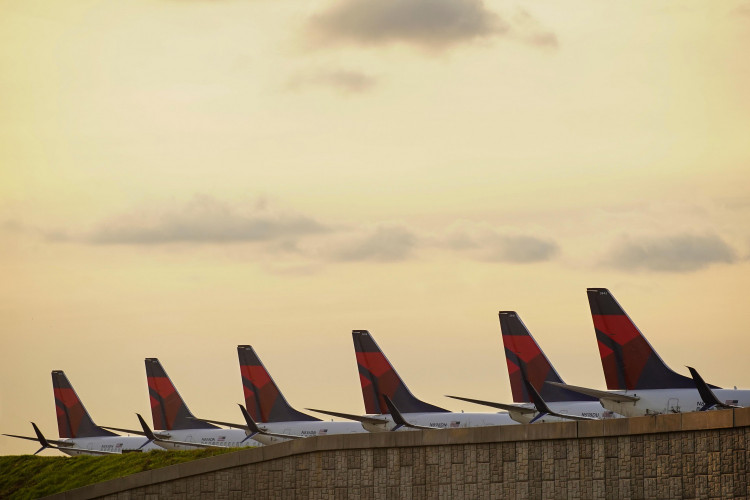Delta Air Lines has reportedly secured a new $1 billion in additional liquidity through aircraft sales which the company would then lease back from its customers.
The airline is struggling to improve its financial condition due to the coronavirus pandemic that has roiled global demand for air travel.
Earlier this month, Delta revealed that it is losing around $60 million per day and estimates sales in the second quarter to plummet a whopping 90 percent, year on year.
As part of the deal, the carrier will collect $750 million in proceeds from BBAM Aircraft Leasing & Management and $250 million from Altavair AirFinance, a source, who asked for anonymity because the matter was confidential, revealed. The deal could be made public in the next few days.
Delta is pursuing to ramp up more private-sector liquidity and reduce its reliance on US government bailout. Last month, the Atlanta-based corporation said it had secured a fresh $2.6 billion loan that could be expanded to $4 billion, drawing $3 billion from existing revolving credit lines.
The federal stimulus funding is among many deals that US Treasury Secretary Steven Mnuchin bared Tuesday as part of $25 billion in bailout measures for commercial airlines in the midst of falling sales because of the crisis.
The funding terms prohibit passenger plane companies from slashing paychecks or benefits for employees or carrying out forced furloughs through Sept. 30. The deal also mandates airlines to keep a minimum number of critical travel flights.
Federal support and cost savings from Delta "will avoid furloughs and pay rate cuts" by the end of September, despite the 95 percent decrease the company has seen in in terms of passenger volume, Delta chief executive officer Ed Bastian said Tuesday night in a memo to staff.
He also notified his personnel that almost 35,000 of the airlines' 90,000 workers had volunteered to take unpaid leave. However, Bastian disclosed that Delta still needs more of the employees to volunteer.
Delta Airlines had about 90,000 workers from April to September 2019, and paid out around $7 billion in total wages and benefits, the US transportation bureau office said.
The travel industry has taken a huge blow in recent weeks as the pandemic continues to wreak havoc on global economies, with countries suspending unnecessary travel, local or otherwise.
Delta Airlines has been no exception to the current slump. Its stock recently plunged at a seven-year low of $19.10 as of March 18. Overhead pressure on its 20-day moving average has also dragged its shares down to a 60 percent year-to-date shortfall, while on Tuesday, its stock last traded down at 7.5 percent to $22.57.





